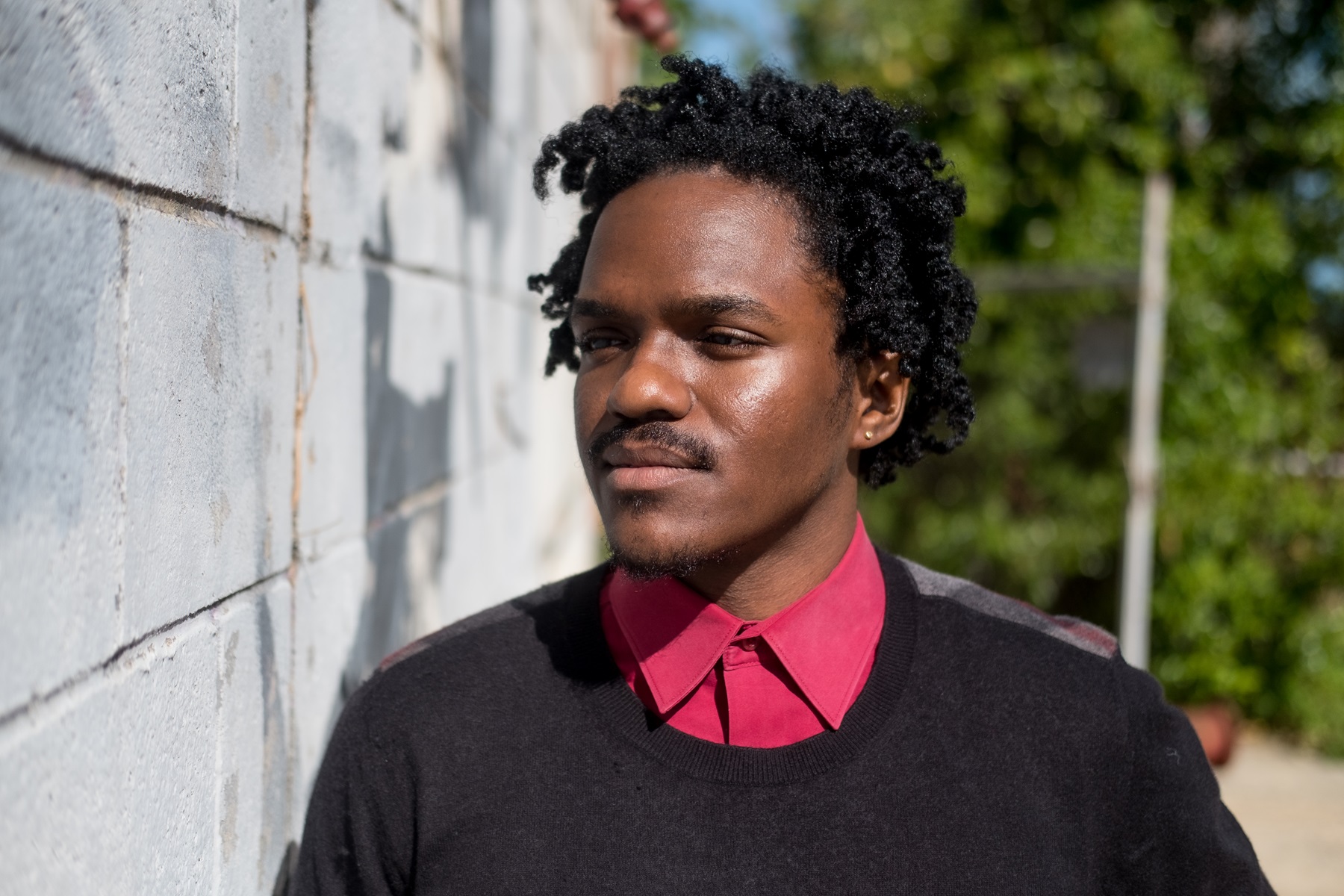ASC Fellowship Recipient Maurice J. Norman Uses Poetry to Empower Black Communities

By Phillip Larrimore
Maurice J. Norman may be young, but he has come far.
Norman, 25, is the recipient of an ASC Emerging Creative Fellowship. He is using the award to finish his first book of poems.
He’s also a key contributor for another ASC-funded project. The Smithville Community Coalition received a $12,850 Cultural Vision Grant for “Don’t Lose Heart,” a live storytelling production that uses poetry, digital media and music to unearth and amplify untold stories about Black communities in Mecklenburg County. Smithville was founded in 1910 and is the largest intact historical Black community in Mecklenburg. It is located in Cornelius.
Norman will interview residents and turn their responses into poems, intertwining their stories with his own as part of the production.
These grants will not only allow him to complete his first book, but hone his vocal techniques, and interact with an entire community with sound, visuals, and theater staging. The first book of poems is presently under the same working title, “Don’t Lose Heart,” as the Smithville project.
“I often think about the pathways of poetry to empower Black communities” Norman said, “and the costs historically, emotionally, financially of our under-representation. ASC funding allows me to be of service to my neighbor, and for that I am grateful.”
He graduated from Davidson College with a double major, a B.A with honors in English and a BA. with distinction in Africana Studies. In his senior year he travelled abroad to Ghana and Australia, tracing the stories of the African diaspora from their origins to their eventual remote destinations.
Norman comes from Mineral Springs in nearby Union County. He describes it as “a town the size of a needle tip.”
“I grew up within the lore and double speech of the American South,” he wrote in his fellowship proposal. ““A train rumbles on the tracks that divide the solar paneled suburbs from the halfway homes. No one says ‘redline.’ We black folks colloquialize our wisdom. ‘Don’t wander on the wrong side.’ ‘Act like you got some sense.’”
His mother raised three children singlehandedly. “And she did it with such grace,” Norman said. She must be a formidable person, as she raised two strong artists. (Maurice’s brother, Malik, is a photographer and maker of highly textured paper which he uses with sculptural ingenuity. His work is now up at The Mint Museum.)
She has two degrees in English, so the apartment was crammed with books. His mother often woke the household singing poetry. Maya Angelou was almost a household deity. Norman was nearly named after Angelou–this was planned– except that he turned out to be a boy.
His mother was his first muse. He writes of her in the poem “Birthright”:
My mother wraps herself in silk
the color of a careless midnight
in A dress that curls in the wind like a black widow’s web
made from careful fingers, independent love
She threaded together in a home
unlike the dirt roads and the loose gravel surrounding it.
In the house next door
my uncle burned trees that he knew would annoy her
enough to abandon her English degrees
speak in that southern twang
where she just looks at you
maybe closes her eyes and says ’alrigh now”.
These first few lines open a poem that quickly broadens in a short span of time. They speak of silenced voices and missing branches on family trees, of infidelity and domestic violence, and of children going hungry. They stir these into a great epiphany in under four and a half minutes. It should seem merely free associative, but an internal coherence and a certain beautiful plainness of speech make it both accessible and mythic.
“I use poetry not only to crystallize memory but also for incessant dialogue (between) the world around and within me,” he wrote.
“Birthright” concludes:
I don’t shame the broken English wrapped in a southern twang.
Still from Grier to Greenville, we rose this city from soil to skyline
generations to come. Remember?
The names from bricklayers fatigued from nation building
letting their hurt show.
I switch dialects with the ease the way my mother taught me.
I excuse my father’s absence/ I let my belly sing.
It can be difficult for Black, Indigenous and other artists of color to escape the burden of what W.E DuBois acutely described as “double-consciousness,” or “looking at one’s self through the eyes of others.”
The tension between “degreed” writing and vernacular speech which Norman writes-and-speaks about between his mother and himself, himself and his community, and his community and the larger world is charged by this. He has turned the burden of double consciousness into an instrument of strength.
“I do not underestimate poetry’s impact,” he said. “A poem can act as a catalyst for deeper intimacy between families, communities, nations. A poem can be a bridge between two human hearts. I care this sense of duty into my work.”
In his next work he is going weave his voice with the community of Smithville.
This is a tall order, but one feels instinctually that if anyone can do it, it is Maurice J. Norman.

